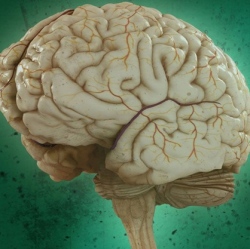
Companies selling ‘probiotic’ foods have long claimed that cultivating the right gut bacteria can benefit mental health, but neuroscientists have generally been sceptical. Now there is hard evidence linking conditions such as autism and depression to the gut’s microbial residents, known as the microbiome.
And neuroscientists are taking notice, not just of the clinical implications but also of what the link could mean for experimental design. “The field is going to another level of sophistication,” says Sarkis Mazmanian, a microbiologist at the California Institute of Technology in Pasadena. “Hopefully this will shift this image that there’s too much commercial interest and data from too few labs.”
This year, the US National Institute of Mental Health spent more than US$1 million on a new research programme aimed at the microbiome–brain connection. And on 19 November, neuroscientists will present evidence for the link in a symposium at the annual Society for Neuroscience meeting in Washington DC called ‘Gut Microbes and the Brain: Paradigm Shift in Neuroscience’.
Although correlations have been noted between the composition of the gut microbiome and behavioural conditions, especially autism1, neuroscientists are only now starting to understand how gut bacteria may influence the brain. The immune system almost certainly plays a part, Mazmanian says, as does the vagus nerve, which connects the brain to the digestive tract. Bacterial waste products can also influence the brain, for example, at least two types of intestinal bacterium produce the neurotransmitter γ-aminobutyric acid (GABA)2.
The microbiome is likely to have its greatest impact on the brain early in life, says pharmacologist John Cryan at University College Cork in Ireland. In a study to be presented at the neuroscience meeting, his group found that mice born by caesarean section, which hosted different microbes from mice born vaginally, were significantly more anxious and had symptoms of depression. The animals’ inability to pick up their mothers’ vaginal microbes during birth, the first bacteria that they would normally encounter, may cause lifelong changes in mental health, he says.
